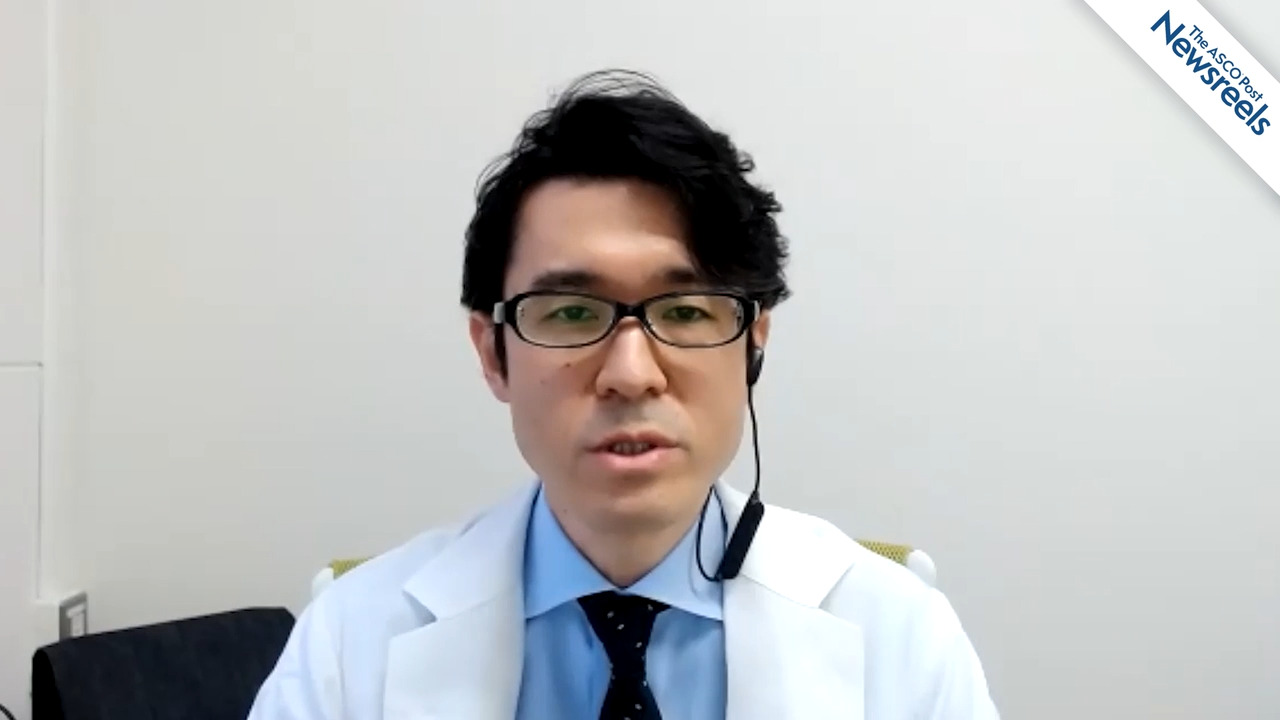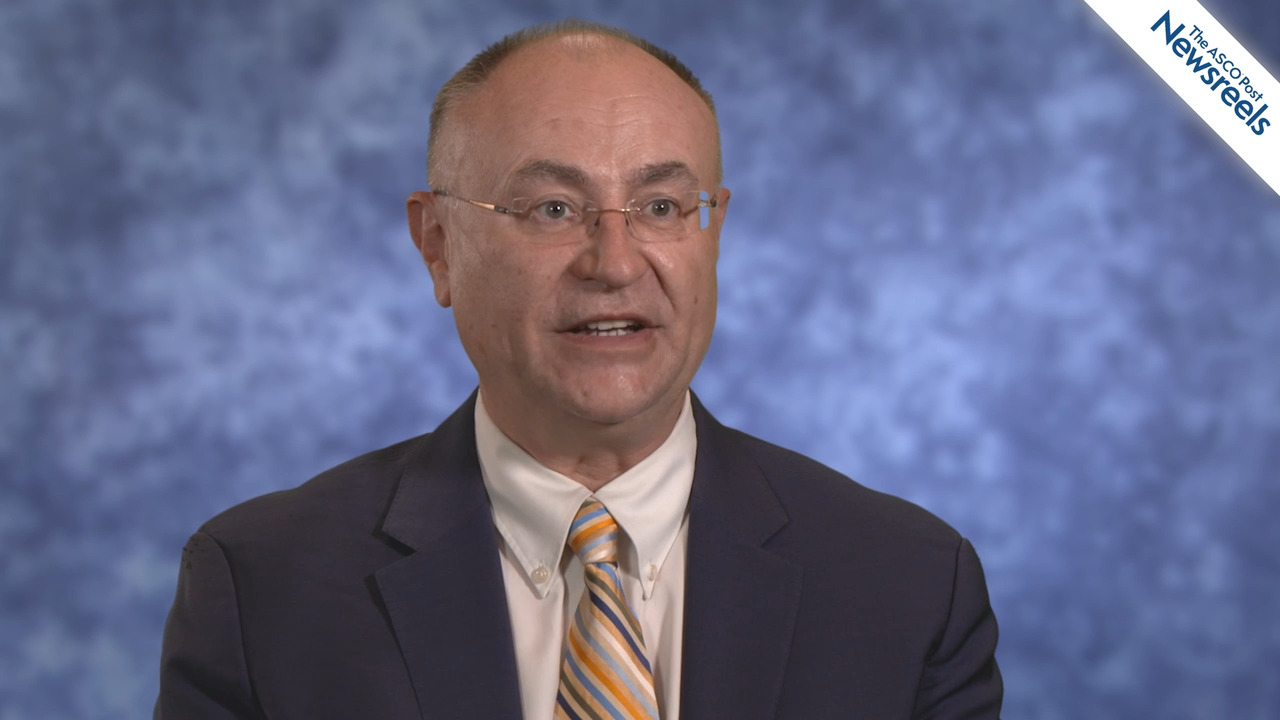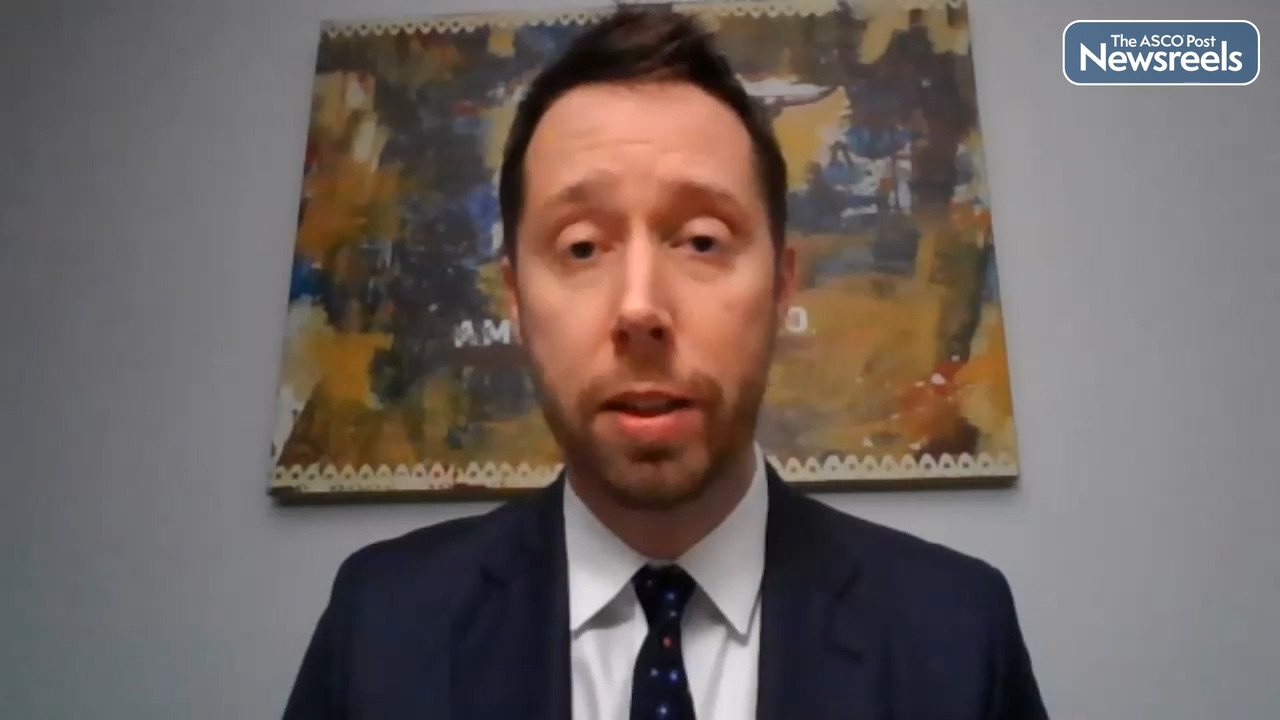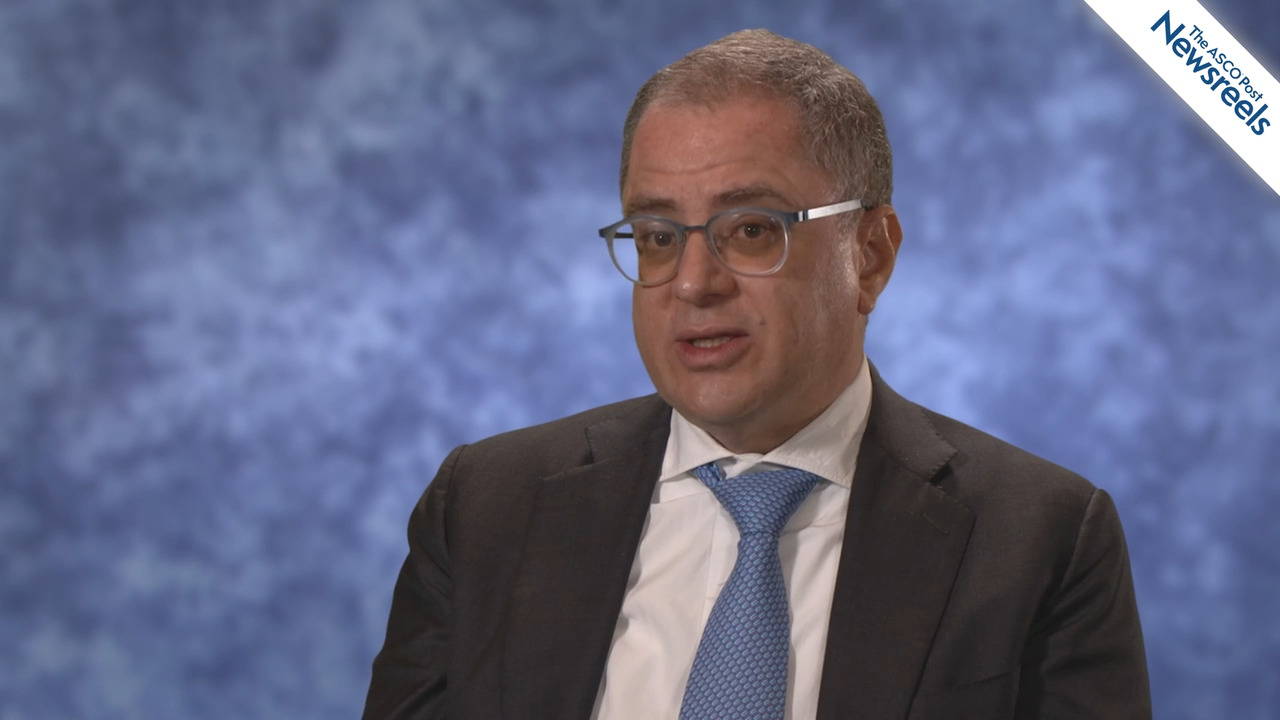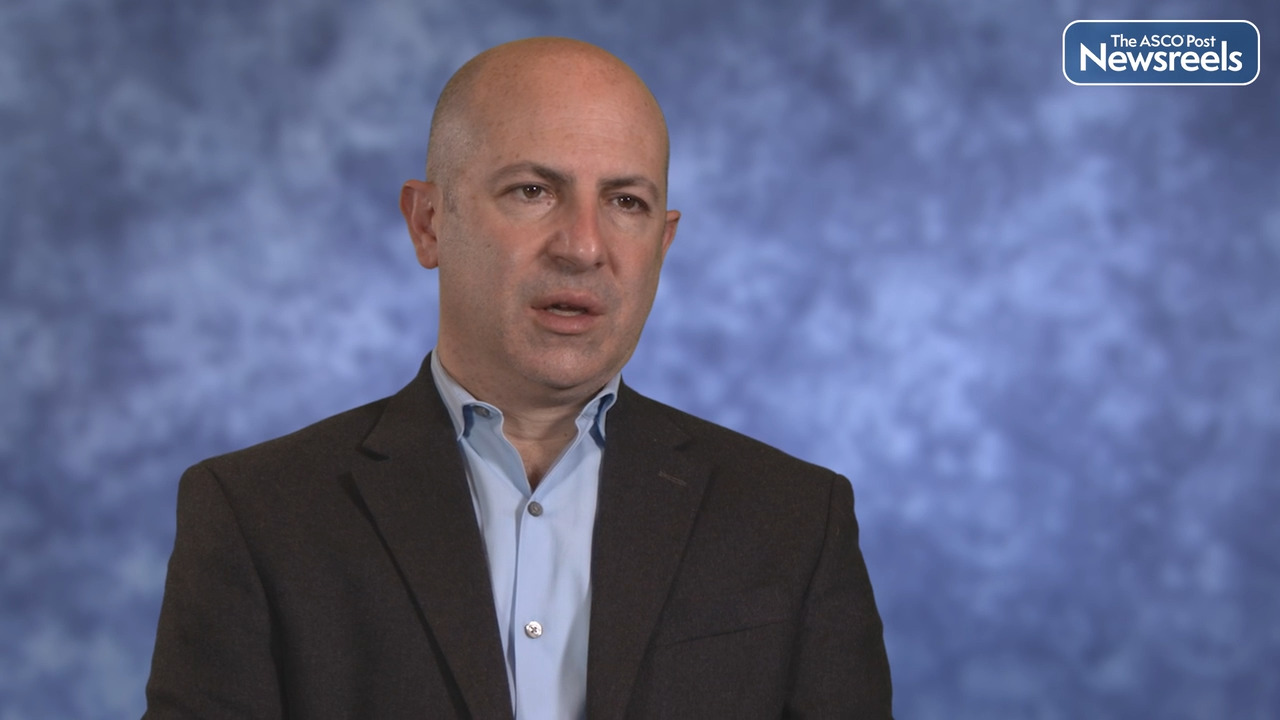Thierry André, MD, on Esophagogastric Adenocarcinoma: New Findings on Nivolumab and Ipilimumab
2022 ASCO Gastrointestinal Cancers Symposium
Thierry André, MD, of Sorbonne University and Saint-Antoine Hospital, discusses phase II results from the GERCOR NEONIPIGA study, which suggests neoadjuvant therapy with nivolumab and ipilimumab may be associated with a high pathologic complete response rate in patients with localized microsatellite instability–high or mismatch repair–deficient esophagogastric adenocarcinoma. This study raises the question of whether surgery could be delayed or avoided for some patients (Abstract 244).
The ASCO Post Staff
Yu Sunakawa, MD, PhD, of Japan’s St. Marianna University School of Medicine, discusses his findings from the DELIVER trial, which suggest the gut microbiome may predict skin toxicities in patients with advanced gastric cancer who are treated with nivolumab. In addition, some single nucleotide polymorphisms, such as NOTCH1, SEMA4D, NLRC5, and IL-6R genes, may potentially become markers for diarrhea and skin toxicities with this agent.
The ASCO Post Staff
Heinz-Josef Lenz, MD, of USC Norris Comprehensive Cancer Center, discusses phase II results from the CheckMate 9X8 study, which compared nivolumab plus fluorouracil/leucovorin/oxaliplatin (mFOLFOX6) and bevacizumab vs mFOLFOX6 and bevacizumab in the first-line treatment of metastatic colorectal cancer. A subgroup of patients may benefit from adding nivolumab to the standard of care in this setting (Abstract 8).
The ASCO Post Staff
Van K. Morris, MD, of The University of Texas MD Anderson Cancer Center, discusses phase I/II data suggesting that encorafenib plus cetuximab and nivolumab is safe and well tolerated for patients with microsatellite-stable BRAF V600E–mutated metastatic colorectal cancer (Abstract 12).
The ASCO Post Staff
Ghassan K. Abou-Alfa, MD, MBA, of Memorial Sloan Kettering Cancer Center and Weill Medical College at Cornell University, discusses phase III results of the HIMALAYA trial, which showed the combination of a single priming dose of tremelimumab added to durvalumab is superior to sorafenib for patients with unresectable hepatocellular carcinoma (Abstract 379).
The ASCO Post Staff
Zev A. Wainberg, MD, of the University of California, Los Angeles, discusses an update, of 25 additional months, on phase III safety and efficacy results from the KEYNOTE-062 trial. This study compared pembrolizumab with or without chemotherapy vs chemotherapy alone for patients with PD-L1–positive advanced gastric or gastroesophageal junction adenocarcinoma (Abstract 243).
